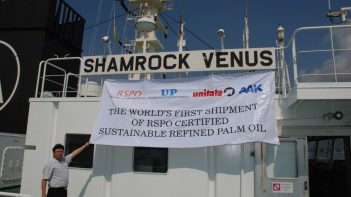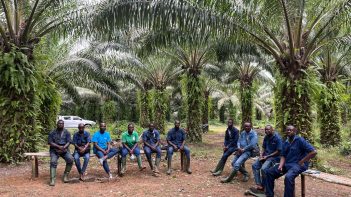A large scale experimental study of the relationship between habitat complexity, biodiversity, ecosystem function and yield in the oil palm landscape is currently underway as a collaborative research project between the University of Cambridge and Smart Research Institute.
Presented by William A Foster, The BEFTA (Biodiversity, Ecosystem, Function, Tropical and Agriculture) Project demonstrates the potential strength of research collaborations between industry and universities. Such collaborations allow access to all aspects of a plantation’s management.
In simple terms, habitat complexity gives a picture of the existing biodiversity on plantations. This in turn will provide insight on its influences on current ecosystem functions, which directly impact the yield of palm oil from a plantation. The research project delves into exploring the levels of diversity that can be supported by oil palm plantations, understanding if habitat complexity enhances biodiversity and ecosystem function, and finally investigating if enhanced ecosystem function increases overall yield.
The BEFTA Project involved reduced, normal and enhanced experimental setups. In the reduced setup there is removal of all ground vegetation by spraying, while the enhanced setup allows for ground cover to grow unchecked. The normal setup has managed levels of ground cover and epiphytes. Plants, insects and vertebrates were closely monitored under the biodiversity variable, while ecosystem functions included soil physical and chemical properties, biological activity in soil, leaf litter decomposition, herbivory activities, dung removal, frog diet and predation. Generally, there is usually a reduced species richness and abundance when there is forest conversion to oil palm.
Pre-treatment data collection commenced from October 2012, and treatment was applied to plots in February 2014 on the impact of two species of beneficial plants, Turnera ulmifolia and Antigonon leptopus on insect abundance and diversity, parasitoid diversity and herbivory were closely monitored.
There were 46 species of dragonfly identified from the BEFTA plots alone and 86 from the whole SMART Research Institute (SMARTRI) area. In total, there were 51 new records for Riau and 3 new records for Sumatra. It was also seen that assassin bug numbers, frog abundance and richness, biomass and abundance of dung beetles and dung removal were lower after treatment and there were also faster rates of litter loss calculated. Apart from this, a new species of Staphylinid beetle was discovered in the oil palm plantation.
From the study conclusion, early results demonstrate that there are high and variable levels of biodiversity within plantations in the location of BEFTA (SMART Research Institute, Riau, Sumatera Indonesia). The plots are fairly uniformed (18 plots altogether, in triplets). The study also shows the potential impacts of understory management on biodiversity and existing ecosystem functions.
Download the presentation here.
Keep reading

Nearly two decades on, Europe continues to drive global demand for RSPO Certified Palm Oil

Communicating Sustainable Palm Oil - examples of success across Europe
[EOT] Terms of Reference: Independent Smallholders Outreach Programme in Indonesia

RT2023 Delegates Propose Solutions to Reinforce RSPO’s Assurance System – End-Year Highlights of Assurance Standing Committee
RSPO UK Members' Day Examines Shifting Dynamics of Doing Business within Europe

Celebrating 20 Years of RSPO’s Sustainability Journey

Circular Economy and Biomass: A Game-Changer for the Sustainable Palm Oil Industry
Uptake Targets for Shared Responsibility for 2024 (Year 5) and Shared Responsibility Verification Manual




